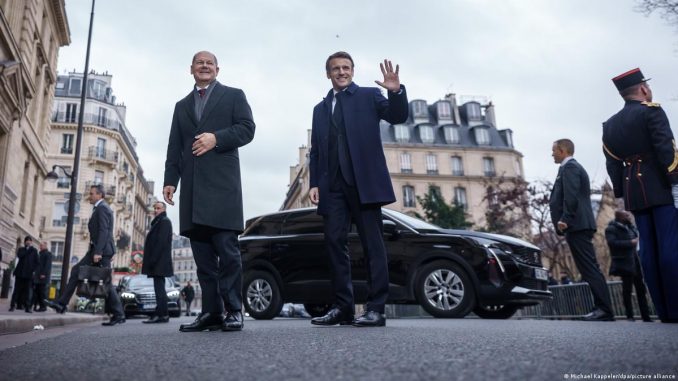
The governments of France and Germany are meeting for consultations. What is expected is harmony on the outside and tough negotiations on the inside.
The foreign ministries of Germany and France like to demonstrate their solidarity. After the coup in Niger, France helped evacuate German nationals from the African country. “Many thanks for this uncomplicated and pragmatic cooperation in times of crisis,” German Foreign Minister Annalena Baerbock wrote on X (formerly Twitter).
That Baerbock and her French counterpart Catherine Colonna are close is one of the well-rehearsed narratives between Berlin and Paris. But the unity of the two women in the foreign ministries is mainly symbolic. They don’t have the same clout: While the French foreign minister is also the minister for European affairs, Germany’s EU policies are controlled from the center of government: the chancellery. Baerbock has little say on EU matters.
Of course, ultimately, the starter button for the “Franco-German engine” in the European Union can be pushed only by French President Emmanuel Macron and German Chancellor Olaf Scholz. The most contentious issues are always negotiated at the top of government.
Courtesy of DW